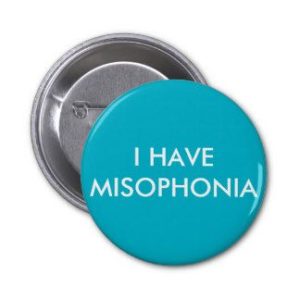 Although doing so is important to ensure the best possible treatment and quality of life, it isn’t generally very easy to get a definite diagnosis of misophonia. This is largely due to factors such as a lack of substantial research on the topic, the tendency to confuse it with other sound-based conditions, and sometimes a general skepticism that the symptoms are as severe and debilitating sufferers claim.
Although doing so is important to ensure the best possible treatment and quality of life, it isn’t generally very easy to get a definite diagnosis of misophonia. This is largely due to factors such as a lack of substantial research on the topic, the tendency to confuse it with other sound-based conditions, and sometimes a general skepticism that the symptoms are as severe and debilitating sufferers claim.
Consult a Professional
A diagnosis of misophonia will generally be made by any one of a dozen health care specialists, which includes those in the fields of psychiatry, speech therapy psychology, and medical social work. Depending on their specific role they will either refer someone for testing, or conduct those tests themselves.
Ruling Things Out
Naturally, it is important to be sure the person in question isn’t suffering from one of the related conditions mentioned earlier, or indeed from something like auditory hallucinations (hearing imaginary voices and noises), which would suggest a problem like bipolar disorder and be a psychiatric issue. Tests may also be carried out to remove the possibility of the symptoms being relating to autism, depression and anxiety, as well as brain scans to check for tumors or lesions.
Key Identifying Factors of Misophonia
-
- Not all sounds are a problem
- The sounds made by one person can trigger it, but the same sounds by another may not
- The volume of the sound is not a factor
- Other senses (touch, taste, sight, smell) are not affected
- The reaction occurs after one incident of a trigger sound
- Soft sounds are more likely to be triggers
- Once the trigger sound occurs, it consumes all of your focus
- Some people report experiencing physical illness during a trigger period
- The responses to triggers are not voluntary
- It is impossible to control emotions in most cases
- People with misophonia feel extreme (negative) emotions such as anger, rage, and fear when encountering a trigger sound,
- The feeling of wanting to run away or be violent is common following a sound trigger episode
If you suspect that you, or someone close to you may have misophonia and the symptoms mentioned here seem to fit it is best to talk to an expert in the field for confirmation, and further details of the treatment which may be available.
Contact us right now to make an appointment for excellent NYC based treatment to help with misophonia.
